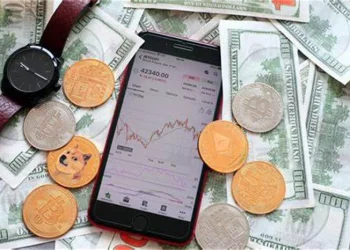The Chinese yuan (CNY), also known as the renminbi (RMB), is the official currency of China. Despite China being the world’s second-largest economy, the yuan remains relatively cheap compared to major currencies like the U.S. dollar and the euro. Many people wonder why this is the case. This article explores the reasons behind the yuan’s low value, focusing on government policies, economic strategies, trade dynamics, and global influences.
Government Control Over the Yuan
One of the main reasons the yuan is cheap is because the Chinese government tightly controls its value. Unlike freely floating currencies like the U.S. dollar or the euro, the yuan does not move entirely based on market forces. Instead, the People’s Bank of China (PBOC) sets a daily reference rate and allows the yuan to fluctuate within a small range.
This system is called a “managed float.” The Chinese government does this to keep exports competitive. If the yuan were to rise too much, Chinese goods would become more expensive for foreign buyers. Since China is a major exporter, a weaker yuan helps its economy by making products cheaper on the global market.
Trade Surpluses and Currency Demand
China has long been a trade surplus country, meaning it exports more than it imports. This creates a high demand for Chinese goods but does not necessarily lead to a stronger yuan. Normally, when a country sells more abroad, its currency should appreciate because foreign buyers need to exchange their money into yuan to pay for Chinese products.
However, China’s central bank intervenes to prevent this from happening. It buys foreign currencies (like dollars) and sells yuan to keep its value low. This strategy ensures that Chinese exports remain affordable, supporting economic growth and employment.
Capital Controls and Limited Convertibility
Another reason the yuan is cheap is that China imposes strict capital controls. This means money cannot freely flow in and out of the country. Foreign investors face restrictions when trying to move large amounts of yuan overseas.
In contrast, currencies like the U.S. dollar are fully convertible, meaning they can be traded without restrictions. Since the yuan is not freely convertible, its demand in global markets is limited. This reduces its value compared to more widely traded currencies.
Inflation and Interest Rate Differences
China’s inflation rate has historically been higher than that of developed countries like the U.S. and Germany. When a country has higher inflation, its currency tends to lose value over time because prices rise faster than in other nations.
Additionally, China’s interest rates are often lower than those in Western economies. Lower interest rates make the yuan less attractive to foreign investors seeking high returns. As a result, demand for the yuan does not grow as quickly as for currencies with higher interest rates.
Geopolitical and Economic Risks
Investors view the yuan as riskier than the U.S. dollar or the euro. China’s financial system is less transparent, and government policies can change suddenly. For example, crackdowns on tech companies or real estate crises can scare away foreign capital.
The U.S. dollar, on the other hand, is considered a safe-haven currency. In times of global uncertainty, investors prefer holding dollars, which keeps demand high. Since the yuan does not have the same level of trust, its value remains lower.
The Role of the U.S. Dollar Dominance
The U.S. dollar is the world’s primary reserve currency. Most international trade, including oil and commodities, is priced in dollars. This gives the dollar a huge advantage, as countries need to hold large dollar reserves.
China has been trying to increase the yuan’s global role, but progress is slow. Many countries still prefer using dollars for trade and investments. Until the yuan becomes more widely accepted, it will likely remain cheaper than the dollar.
Future Outlook for the Yuan
China is gradually opening its financial markets and promoting the yuan for international trade. Programs like the Belt and Road Initiative encourage the use of yuan in global transactions. However, full currency liberalization is unlikely in the near future.
As long as China prioritizes export growth and economic stability, the yuan will remain undervalued. A sudden appreciation could hurt its economy, so the government will continue managing its value carefully.
Conclusion
The yuan is cheap due to a combination of government control, trade policies, capital restrictions, and global market dynamics. China deliberately keeps its currency undervalued to support exports and maintain economic stability. While the yuan may slowly gain importance in global finance, it will likely remain weaker than major reserve currencies for years to come.
Related Topics:














